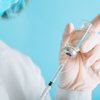Fritextsökning
Artiklar per år
Innehållstyper
-

Marie Gårdmark: ”Vi behöver sätta ord på olika aktörers förväntningar”
”I strävan efter samverkan får vi inte vara tondöva för det som skiljer olika aktörer åt utan snarare använda det till vår fördel”. Det skriver Marie Gårdmark i en krönika.
-

Healthcare study: Alzheimer’s blood test shows high accuracy
A blood test for identifying Alzheimer’s has now been tested in the general healthcare setting. According to the researchers, the test was 90% accurate in making a diagnosis.
-

Nytt steg närmare marknaden för Sobis giktläkemedel
Läkemedelsutvecklaren Sobi har inlett en stegvis ansökan om marknadsgodkännande i USA för bolagets nya giktläkemedel Sel-212.
-

Gothenburg, the city of life science – We are ‘Little Boston’
Western Sweden is investing in life science within everything from advanced therapeutic drugs to femtech. At the same time, stakeholders are looking to other industries for inspiration and knowledge.
-

Danish obesity success causes recruitment problems in southern Sweden
The substantial expansion of Danish Novo Nordisk is affecting companies in southern Sweden, which are finding it increasingly difficult to compete for attractive staff.
-

”Vi har börjat skala upp så fler ska få tillgång till analyser”
Mångsysslaren Richard Rosenquist Brandell har ofta jobbet i tankarna dygnet runt. Han har ett stort engagemang för precisionsmedicin och blodsjukdomar och har fått några av sina bästa idéer på crosstrainern.
-

Ny doseringsform öppnar för enklare behandling med lecanemab
En ansökan om marknadsgodkännande i USA har påbörjats för det svenskutvecklade Alzheimerläkemedlet lecanemab i subkutan form.
-

Carl Borrebaeck – professor and serial entrepreneur with a taste for speed
Award-winning cancer researcher, the founder of many listed companies, and constantly in the academic and commercial spotlight for decades. However, Carl Borrebaeck, Professor of Immunotechnology at Lund, is not yet satisfied. “We have a new, potentially super exciting project in the pipeline,” he says.
-

Settlement of cancer allegations against blockbuster drug
French pharmaceutical company Sanofi has reached a principal agreement in the US on around 4,000 of the cases in which its now withdrawn blockbuster heartburn drug Zantac allegedly had caused cancer.
-

The life science strategy – what the industry wants
The process of updating the national life science strategy has begun at the government’s life science office. According to industry stakeholders, Sweden’s competitiveness, the accessibility of health data and the integration of innovation in healthcare are some of the points that are essential to review.
-

”We need compatibility“
Penilla Gunther, founder of Fokus Patient and chair of the European Patient Safety Foundation, hopes that the forthcoming life science strategy will focus on efficient and secure management of patient data and equal access to medicines.
-

Specific proposals and targets top the universities’ desired priorities
What are the universities’ expectations for the update of the national life science strategy? Life Science Sweden posed the question to representatives from Karolinska Institutet and Sahlgrenska Academy.
-

Anna Törner: ”Orphan designation läkemedelsutvecklingens ’petite robe noire’”
Det är så lätt att klamra sig fast vid olika regulatoriska incitament, som orphan designation, utan att egentligen veta vad de innebär och på vilket sätt de kan vara rätt (eller fel), skriver Anna Törner i en krönika.
-

Venom from the deathstalker carries radiopharmaceuticals to the brain
In order to target cancerous brain tumours with radionuclides, the problematic blood-brain barrier must first be crossed. Life Science Sweden has visited a KI researcher who is trialling an unusual approach ‒ using scorpion venom.
-

“Don’t postpone the transition to IVDR”
Operators who have not yet started to adapt to the requirements of the new EU IVDR regulation are running out of excuses. This is the opinion of Helena Dzojic, Head of Unit at the Swedish Medical Products Agency, who continues to persistently spread her message: don’t postpone the transition.
-

Novavax löser tvist om covidvaccin med vaccinorganisation
Det amerikanska vaccinbolaget Novavax har nu löst en tvist med den globala vaccinalliansen Gavi. Tvisten grundar sig i ett upphävt avtal om covidvaccin.
-

Minskade dödlighet med 27 procent i studie – cancervaccin godkänns som särläkemedel
Det nya cancervaccinet från Ultimovacs får nu status som särläkemedel i EU. "Ett viktigt steg", enligt vd:n.
-

Diamyd får snabbspår i USA – ”Oerhört glada”
Svenska Diamyd Medical har beviljats ”Fast Track Designation” – ett snabbspår – av amerikanska FDA för sin immunoterapi under utveckling för patienter med typ 1-diabetes.
-

Rising interest in CRISPR treatments
Treatments using CRISPR technology are emerging as one of the hottest medical trends in the United States – and the FDA is doing its best to promote the development.
-

Stark uppgång för Crispr-behandlingar
Behandlingar som använder gensaxen Crispr växer fram som en av de hetaste medicinska trenderna i USA – och läkemedelsmyndigheten FDA gör sitt bästa för att stödja den utvecklingen.
-

Anna Törner: “My quantified life”
“The expression ‘you can’t see the forest for the trees’ feels newly relevant in the context of wearables. One can easily get caught up in the idea that the more we measure, the more we know,” Anna Törner writes in a column.
-

Cancervaccin får snabbspår i USA
Norska Ultimovacs har beviljats ett så kallat Fast Track Designation från den amerikanska läkemedelsmyndigheten, FDA, för sitt cancervaccin UV1.
-

Failed to read the fine print – lost his life’s work
A celebrated CEO and co-founder of a pioneering lab company one moment – the next, fired, kicked out and written out of the company’s history. This is the story of a Swedish entrepreneur who was going to raise US venture capital to strengthen his company but lost his life’s work instead.
-

Ingrid Lönnstedt: Demystification of the power of a scientific study
”You surely do realize that even the smallest changes in study assumptions may influence the estimated sample size needed. And how is it even possible to guess the magnitude of the treatment effect before performing the study?” writes Ingrid Lönnstedt in a column.